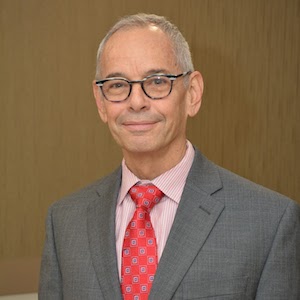Stephen Brady, PhD

Associate Professor of Psychiatry
Education
I received my BA in Sociology from the University of Florida in Gainesville FL, and my MA and doctoral degrees from the University of California, Santa Barbara, CA.
Biography
It is my privilege to be a member of the Psychiatry Faculty at Boston University School of Medicine for over 25 years. I have been the Assistant Dean and Director of the Mental Health Counseling and Behavioral Medicine Program in Graduate Medical Sciences, Chair of the faculty at Boston University, Chair of the American Mental Health Counseling Associations Professional Development Committee and Chair of the American Psychological Associations Counsel on Psychology and AIDS. I am an active psychotherapist who primarily counsels the LGBTQ community. My research interests have tended to focus on HIV and serious mental disorders where I have led or been part of several federally funded projects. I recently served as the Principal Investigator (PI) for a National Institute of Mental Health study examining Motivational Approaches for HIV prevention for mentally ill and am currently serving as Co-PI for a Substance Abuse and Mental Health Services Training Grant.
Questions & Answers
Q: Please describe your theoretical orientation and teaching philosophy.
I would describe my theoretical orientation as “technical eclecticism” which utilizes a variety of empirically supported treatment strategies that are selected based upon client need rather than a therapists’ “a priori” assumptions about behavior change. I have been very fortunate to work with a wide variety of clients including the medically ill, the mentally ill, the developmentally disabled, and those with more everyday problems of living. I am currently utilizing a cognitive-behavioral intervention in my HIV research as well as in clinical practice. I also routinely utilize ego psychology and existential psychotherapy and counseling in clinical practice.
Regarding my teaching, I emphasize a “see one” “do one” and “teach one” approach to clinical mental health counseling. The courses I have taught most frequently emphasize experiential learning. After an initial brief lecture with ample clinical examples I frequently demonstrate a clinical intervention and then have students demonstrate the intervention either in a role-play scenario or conducting a workshop in class.
Q: Why did you choose to be a faculty member in the Mental Health Counseling and Behavioral Medicine Program?
I cannot imagine a more interesting role than being part of a counselor education program. I was trained and have embraced the scientist-practitioner model which emphasizes teaching, supervision, research, and clinical care. The reasons why I became a Counselor Educator are numerous. I love being busy and truly embrace teaching, research, and clinical work. I grew up as the eldest child in a volatile but loving family where I often played the role of peace-maker. I had an opportunity to work with the developmentally disabled in college which allowed me to see the power of “helping”. I worked as a mental health assistant in a forensic center after college and was encouraged to be a mental health provider. I was lucky.
Q: What do you enjoy most about teaching in the Mental Health Counseling and Behavioral Medicine Program?
It is very rewarding to train the next generation of clinical mental health counselors. I am at a stage in life where being generative and nurturing new clinicians is highly meaningful to me. I have spent 20+ years in the field and feel as if I now have a lot to offer as a scholar-practitioner. As the field of mental health counseling has come to embrace a range of clients, not just the worried well, I believe the bio-psycho-social approach of our program is the best way to train the next generation. I also love the diversity of our student’s backgrounds which includes degrees in such areas as education, psychology, human development, biology, neuroscience, genetics, and sociology. I think the diverse academic background of our students creates a more vibrant learning environment from which I have also learned a great deal.